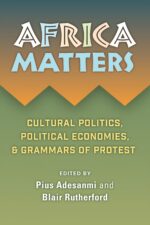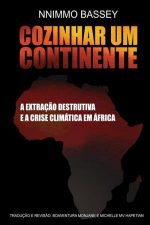Críticas da obra:
“Uma provocante crítica à extração contemporânea dos recursos (talvez mais adequadamente, “exploração” dos recursos) na África Subsariana. Na sua convincente análise, e em momentos abrasadora, Bassey apresenta uma critica cativante e abrangente da crise social e ambiental que se vive na África” – Chatham House
“De escravos a diamantes e passando pelo petróleo, há muito que os países mais consumistas têm vindo a pilhar a África a seu bel-prazer. Bassey explica muito bem como tudo isso tem vindo a acontecer, frisando bem o que procura a África: Justiça. Leia a obra e junte-se ao apelo de Bassey” – Annie Leonard, autora d´A estória das coisas
“Um livro que explica, de forma perspicaz e eloquente, o que a África pode fazer para travar as novas formas de colonização exacerbadas pelo caos das mudanças climáticas” – Pablo Solon, ex-embaixador da Bolívia nas Nações Unidas
“É uma obra que, a par da forte denúncia que faz da ganância e do saque da riqueza africana, apresenta perspetivas de esperança” – Camilla Toulmin, presidente do Instituto Internacional de Desenvolvimento e Meio Ambiente
“A África e o seu ambiente. Com um estilo refrescante, o autor torna as suas ideias extremamente acessíveis. Um dos mais proeminentes ambientalistas da África, faz uma análise abrangente dos desafios que enfrenta o continente, inspirando as pessoas a agir.” – David Fig, Presidente da Biowatch South Africa e autor do Staking Their Claims
“Para aqueles que ainda estão sépticos dos efeitos das mudanças climáticas, este livro vai deixa-los não apenas incomodados e preocupados, mas também motiva-los a fazer alguma coisa” – Nigerian Compass
O nigeriano Nnimmo Bassey é arquiteto, ativista ambiental e escritor. Foi presidente dos Amigos da Terra Internacional (Friends of the Earth International) de 2008 a 2012 e Diretor Executivo da Ação pelos Direitos Ambientais (Environmental Rights Action) durante duas décadas. Em 2009, foi nomeado “Herói do Ambiente” pela revista Time e, em 2010, foi co-vencedor do prestigiado Right Livelihood Award (considerado o Prémio Nobel Alternativo). Em 2012, ganhou o Rafto Prize. É atualmente diretor da Fundação Health of Mother Earth, uma organização ambientalista de reflexão e advocacia.









